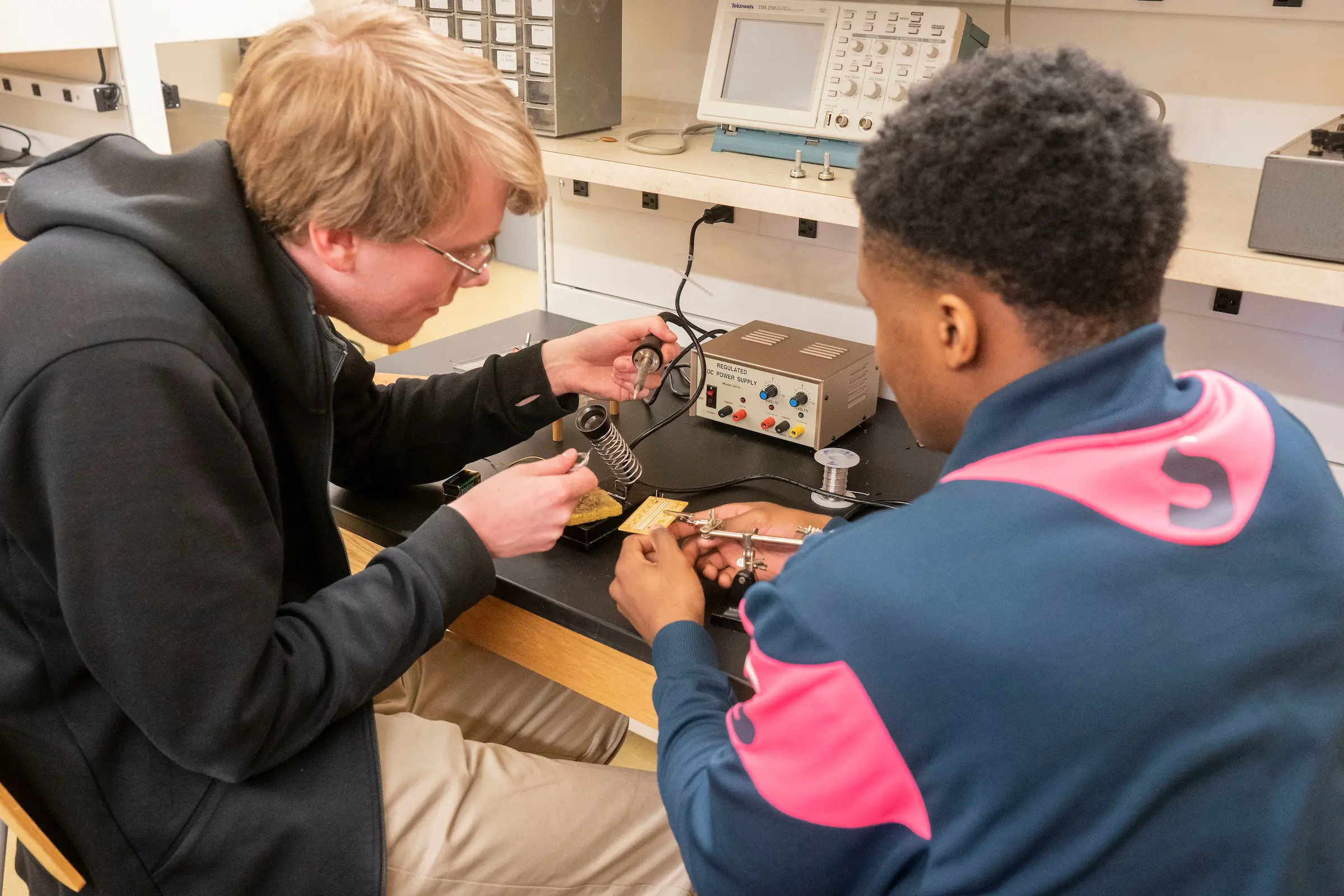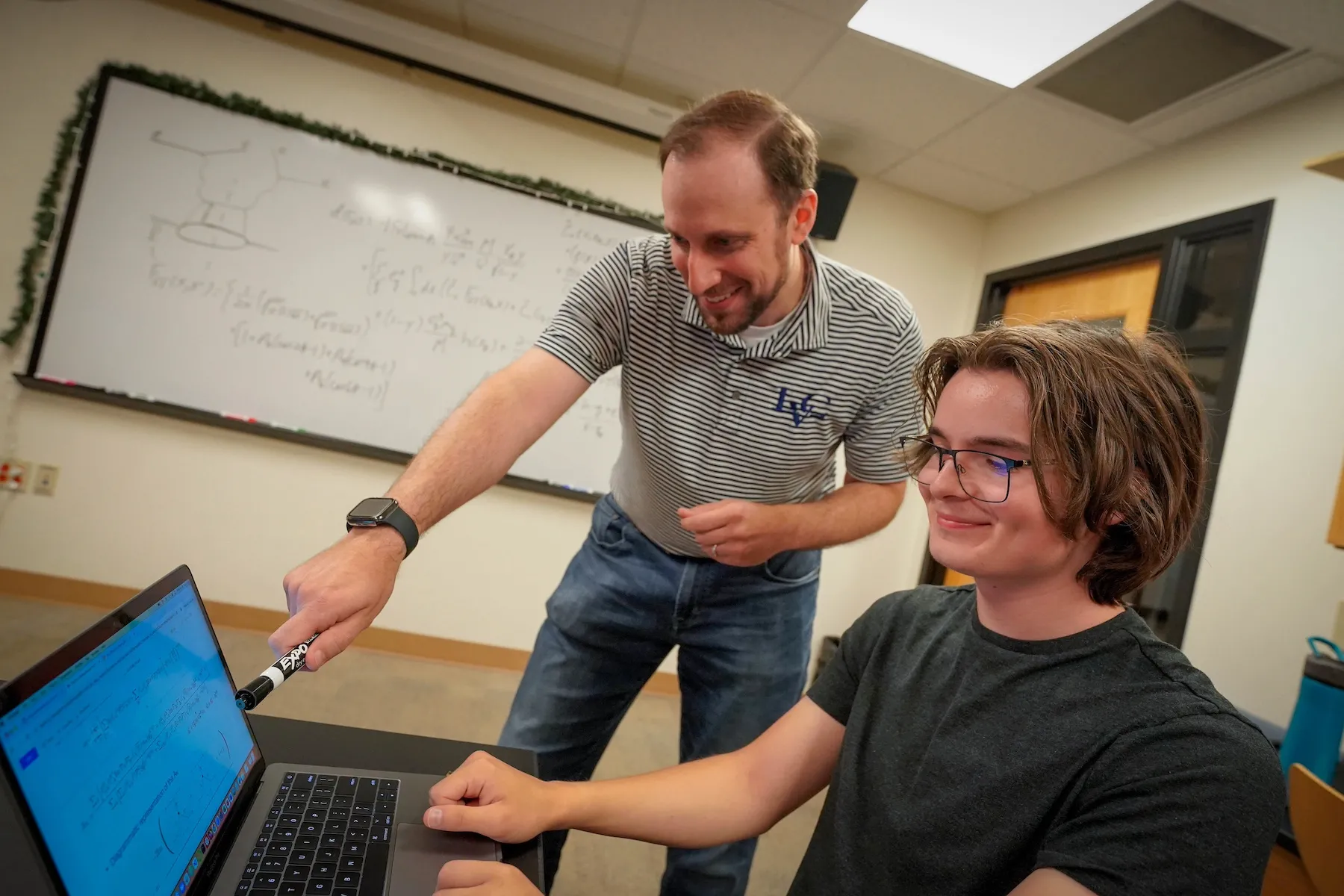
Learn More About the Program
You’ll learn how to apply the engineering design process to find the best solutions: define a problem, identify constraints and criteria for success, propose solutions, create prototypes, test them, and iterate to get there. You’ll take courses that provide you with fundamental physics knowledge, build your analytical, programming, and experimental capabilities, and allow you to work through self-designed hands-on projects.
Our engineering physics degree will prepare graduates to work at an engineering firm or companies involved in researching, developing, and manufacturing technological devices. The American Institute of Physics notes that among physics bachelor’s hired in the private sector, 35% are employed in engineering fields and another 43% in physics, computer science, or other STEM fields. You’ll also be well prepared for graduate-level study in physics or engineering.
-
Aerospace Engineer
-
Electronics Engineer
-
Materials Engineer
-
Physicist
-
Product Engineer
-
Research Scientist
-
Electrical Engineer
-
Industrial Engineer
-
Nuclear Engineer
-
Process Engineer
-
Quality Assurance Engineer
-
Systems Design Engineer







